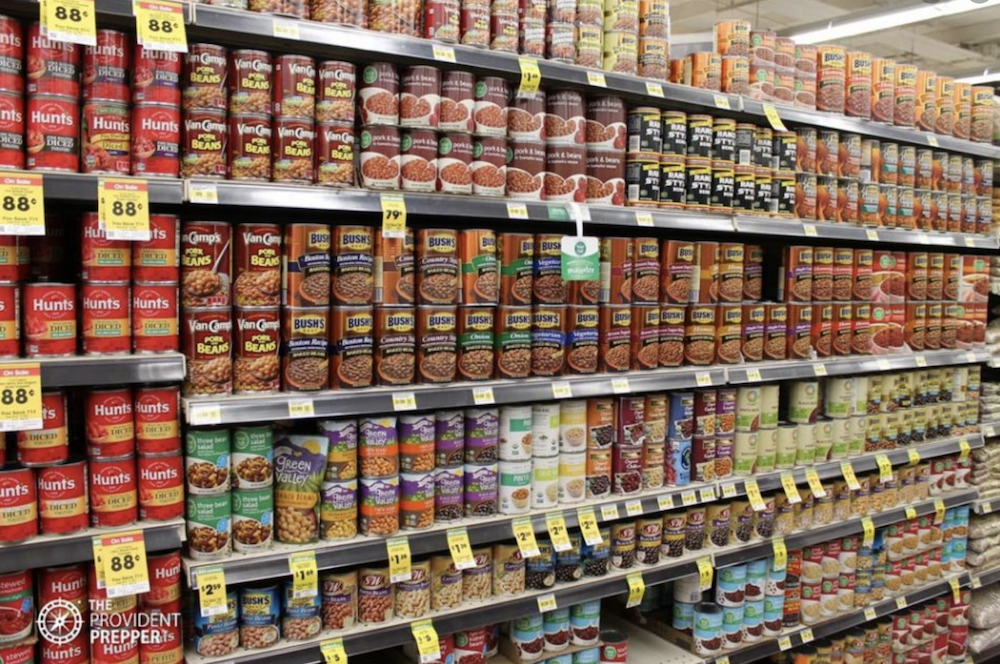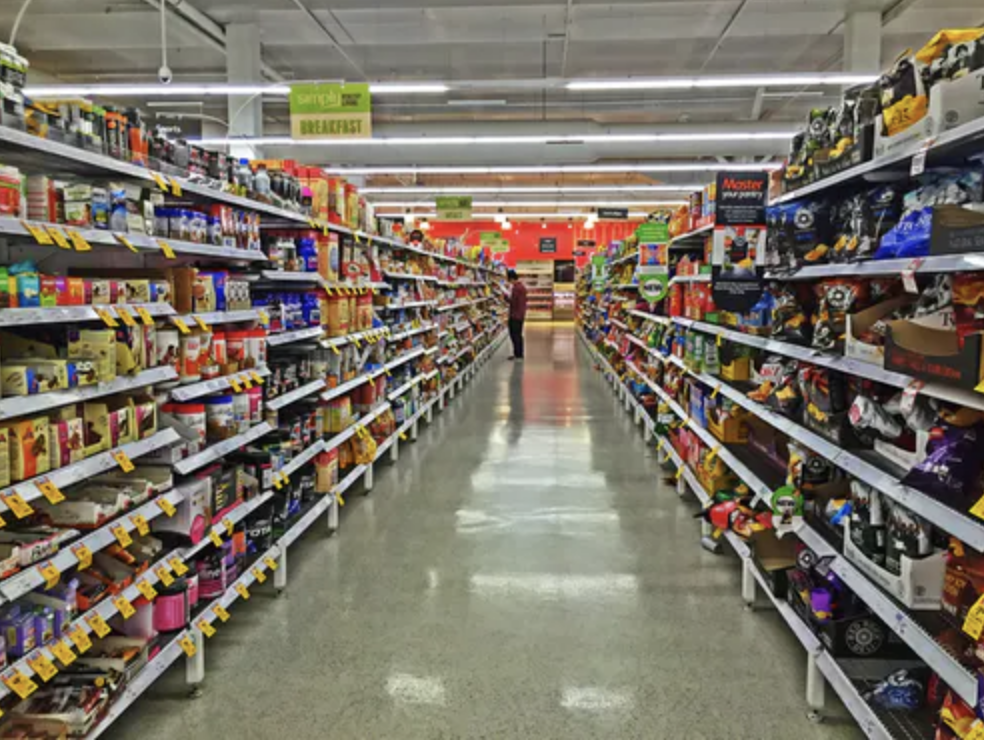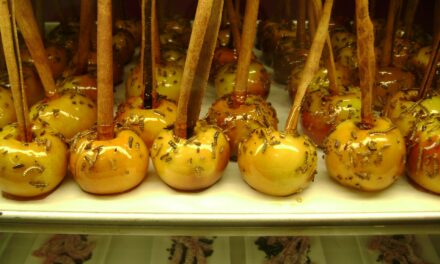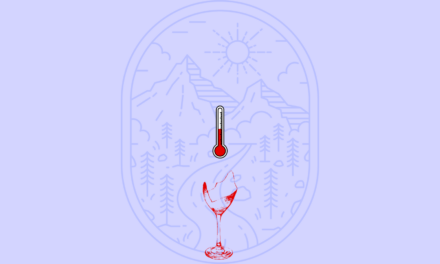Challop (noun) – plural : challops
Pronounced “chah-lop’
1: Abbreviation for challenging opinion.
2: An irregularly published column on website Good Food Revolution.
Much to the amusement of friends and the bemusement of family, I have been a little bit of a Prepper for nigh on a couple of decades.
Upon hearing that due to fears of the current COVID-19 situation some people are irresponsibly panic buying, I cannot stop thinking “but surely any smart person would already have all this stuff?” as that’s simple common sense to me.
But no, it appears that the majority of Canadians have little to nothing in the way of emergency preparedness. You know, all that stuff one really should have on hand in case of a blackout, icestorm, or any natural or man-made disaster? The stuff the government recommends you have?
Whilst I’m not suggesting that our readership immediately run out to a supermarket and madly purchase everything on the list below, I’d strongly advise that if you don’t have such a back-up stash already, you should perhaps add a few of these items to your usual shopping list, and build up a decent emergency pantry over the coming weeks. Leaving it until the very last minute (like most people undoubtedly will) is where you would begin to run into problems. Remember that some idiots have already been brawling over toilet paper in a Toronto Costco… What the hell is wrong with people?
I think it’s pretty fair to say that one should have in reserve just enough food to last you and your family two to maybe three weeks, and in a perfect world enough for an entire month. Whilst I am aware that this may seem completely over-the-top to many of you, I’ve always felt that it is so much better to be safe than sorry. At this particular juncture in time, who knows how long we may be asked to self-isolate for? or, when we get past the containment phase, what other reasons we’ll be advised to stay indoors for? Whilst I don’t mean to scaremonger, being as prepared as one can be has never been so important within my lifetime.
Often people question the prohibitively expensive nature of such an endeavour/indulgence, but it doesn’t really have to be that way, especially if you spread it out over the course of a few weeks. Bully for you if you can afford to stockpile from Wholefoods/Pusateri’s, but if one is to visit a No Frills or Fresh Co. not-so-supermarket one can more often than not find even branded items on sale, especially canned goods, pasta, and rice, making it much easier to stock your backup pantry without breaking the bank.
On the subject of freeze-dried emergency/survival food and/or MREs (Meals Ready to Eat), I have tried a few of these over the years and found each and every one to be most unappealing, with most tasting like wallpaper paste bulked-up with salty sawdust. Saying that, if any survival food suppliers would like to send me some of their product to review I’d be more than happy to try them out and write about them on Good Food Revolution.
Ideally I like to tell you that I was a master of canning, pickling, dehydrating, and breadmaking, but I’m not so skilled at any of these things. As hunting is strictly no-go in the city and gardening is undeniably out as we are (at time of writing) midway through a Canadian winter, I’ve had to plump for regularly available supermarket foods.
I never work out par stocks or anything like that, as it’s not really an exact science for me; I just tend to know approximately what’s in our cupboards and the basement at all times, and as I do all the cooking, approximately how much we as a family consume in any given week/month.
Personally I have discovered that just knowing that one has such resources on hand can considerably help alleviate anxiety, giving one a little piece of mind in fraught times such as these.
Regular rotation of your emergency pantry aside, hopefully you’ll never have to utilise it.
Rice/Pasta
It’s always good to stock up on dry pasta and/or rice as a reliable source of carbohydrates and in the case of many enriched pastas, thiamin, riboflavin, niacin, folate, iron, selenium, and phosphorus. As long as you store these in airtight containers, both pasta and rice keep for a lot longer than one would imagine, and the meal possibilities are pretty endless. And, of course, if you opt for wholewehat pasta and brown rice you can keep yourself nice and regular, a blessing in the very best of times. Rotate the pasta and rice out every 12 months or so.
Dried Pulses/Beans
Speaking of keeping yourself regular, dried beans are always a Prepper’s favourite. Stupidly inexpensive and easily stored for the long haul in Mason jars, beans and pulses are nutritionally one of the best easily-available long-term-storage protein sources (and all that fibre!) If you want to go really hardcore, purchase some Mylar bags and oxygen absorbers from Canadian Prepper for some serious shelf-life that hopefully will have your grandchildren asking you on your deathbed why you have all those shiny bags in the basement. Of course those Mylar bags work for pasta and rice too, but I prefer to rotate those out.
Canned Pulses/Beans
As above, but they keep for a longer period of time without too much faffing about with Mason jars or Mylar bags with oxygen absorbers.
Nuts/Seeds
Nuts and seeds are again, much like beans and pulses, another couple of nutritional powerhouses. The only real issue is with their shelf life. In the short term (over four to eight weeks) you shouldn’t have too many problems though, especially in airtight containers, namely Mason jars again. Nuts go stale… and that’s just fine, as you can toast them and they taste perfectly fine, often better. The problems occur when they go rancid as the fats oxidise (this happens particularly rapidly in walnuts and pine nuts.) You don’t want to be eating those as they can give you terrible, terrible gut-rot… the worst gas one could ever imagine. Prepper Kitchen tip: throw out any nuts that smell like grass, paint or nail polish. Your body will thank you.
As for seeds, I swear by Chia seeds (omega-3 fatty acids, rich in antioxidants, and they provide their fair bit of fibre, iron, and calcium), and they keep pretty damn well. Stuck in a Mason jar they are still tasting good after three years when I add them to my family’s oatmeal, yoghurt, or smoothies.
Peanut Butter
I think it goes without saying that one shouldn’t really be purchasing peanut butter that contains anything more than peanuts, and that one should give all those sweetened ones an extremely wide berth. Like spreadable version of the nuts above, packed full of protein, fibre, and healthy fats, PB keeps for quite some time before going rancid. Just be sure to check the Best Before date upon purchase.
Canned Tomatoes
It appears that larger cans of these are constantly discounted at supermarkets around me, and so they make a fine addition to any emergency pantry.
Canned Soups
Another item that can be found on sale every so often, even some of the better brands. Whilst one wouldn’t want to be living on these exclusively for too long (many of them have extremely high levels of salt contained within) they do serve their purpose as a good standby in an emergency situation.
Canned Meat/Fish
Obviously it’s better to have fresh or frozen, but canned meat and fish may be some of your better options come an emergency situation. Obviously, tuna and salmon are mainstays here, and can often be found on sale at supermarkets if one gets lucky. Don’t dismiss canned sardines and mackerel, both exceptionally good for you, and much less expensive than the tuna and salmon. My wife and Mother-In-Law both swear by canned smoked oysters, but on those the jury is certainly out for me. You know, I have discovered that canned ham is not nearly as gruesome as one may imagine it to be, and when was the last time you tried Spam? I have to draw the line at Stagg Chili and those decidedly grim Fray Bentos pies though.
Canned Fruits/Vegetables
Whilst the thought of eating vegetables or fruits from a can may turn your stomach, canning technology has come a long way since the tins of sad-looking grey peas of my youth. I also just discovered that our son rather enjoys cling peach slices (in pear juice.)
Instant Noodles
It wasn’t until I spent a day preparing instant noodles with Mandom Hui that I truly appreciated how wonderful they could be with a little care and attention. Not to be sniffed at, instant noodles can, if you make the effort, become the base component of a delicious and nutritious meal. They are also ridiculously inexpensive and have a staggeringly long shelf life.
Herbs/Spices
Although most of my friends have a decent selection of herbs and spices on hand, I’m less convinced by how often they rotate and replenish them.
Granulated/Jarred Garlic
We go through a hell of a lot of fresh garlic in our household, and over the years I have come to discover that in a pinch, the long-lasting powdered and jarred stuff (in oil) does an truly admirable job adding flavour to dishes, and it lasts for bloody ages.
Dried Fruit
Dates, apricots, figs, bananas. A great source of energy that stores extremely well. Store in Mason jars.
Frozen food
Sure, you are pretty screwed if the power goes out, but otherwise the freezer is your friend for long term storage of food. I always keep a few homemade soups and stocks on hand, but also ground beef, sausages, and a decent collection of frozen vegetables that are surprisingly the nutritional equals of their fresh cousins these days.
Eggs
Have you noticed how long eggs last these days? Sure, they won’t exactly be “farm fresh”, but they last a lot longer than most people imagine, even out of the fridge.
Coffee/Tea
I know a few folks who cannot function without their coffee in the morning. If we are ever on lockdown for some reason you won’t be able to visit your local Barista, so ensure you have a lots of backup coffee or tea at home.
Alcohol
At Good Food Revolution we consider beer and wine to be food, and hence you’ll find them on this pantry list. Without meaning to sound in any way judgemental, how much alcohol do you usually consume over the course of a week? Would you be able to handle a week/two weeks/a month without said alcohol? I’d find it tough, especially if I were under stress.
Sure, if you keep a decent wine cellar you are certainly sitting pretty, but most people (even food lovers) don’t. This is an area that I really have to work upon… it’s just so difficult to justify the expense to my teetotal wife! Alternatively one could always purchase one of these. I’d love one of those… with the still attachment.
Chocolate/Cookies/Jams/Granola Bars/Treats
Although I don’t have a sweet tooth myself, I am aware that for many life would get extremely boring quickly without some of the sweeter things in life, so it’s always good to have a backup supply of such things. Also good for bribing children and spouses…
Whilst all of the above are my suggestions for an emergency pantry, it’s still very important to also have the following in reserve in case of an emergency:
Water
Four litres per person per day or drinking, food preparation, personal hygiene and dishwashing. I recommend Aquatainers. Now, it’s unlikely that your water will get cut off with the current pandemic scare, but in the future, who knows what the future holds? Be sure to refill every 12 months, and half a teaspoon of bleach in 25L should keep it reasonably fresh-ish; it should have a very faint bleach scent.
Medication and supplements
I think it’s pretty well understood that one should always have a reasonable supply of any prescription meds as well as painkillers and the like.
A backup can opener
If you have a lot of canned stuff you will be utterly screwed if your usual one breaks. Have you ever tried to open a can without one? Messy. “One is none, Two is one” as Survivalists often preach.
Candles/Battery lanterns (with regularly tested batteries)
Flashlights (with regularly tested batteries)
A Hand-Cranked Radio
You can get a pretty decent one for $30 here.
Toilet paper
How I wish I had splashed out and installed that bidet. Yes, get yourself some extra TP, but please don’t get too angry with anyone in Costco.
Cleaning materials (both for home and personal hygiene)
Bleach, disinfectant, Lysol spray/wipes, Razorblades, Antibacterial soap, Diva Cup
Edinburgh-born/Toronto-based Sommelier, consultant, writer, judge, and educator Jamie Drummond is the Director of Programs/Editor of Good Food Revolution… And be careful out there.









